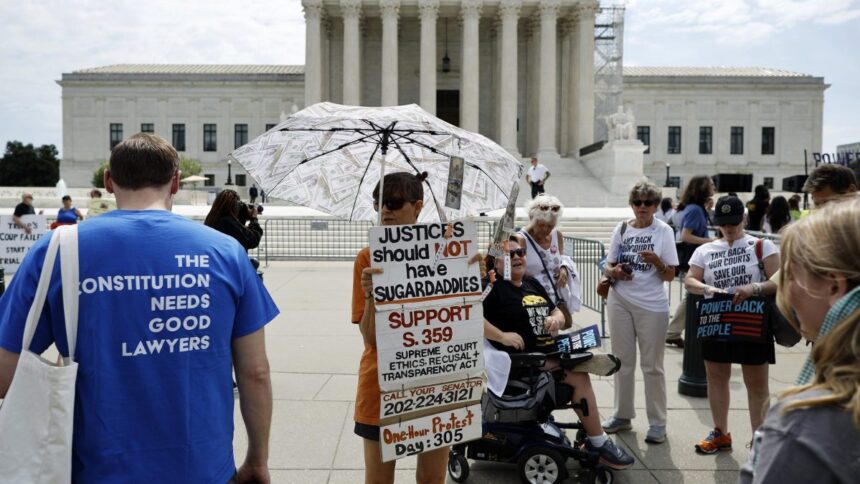The U.S. Supreme Court, in a 6-3 vote, upheld a law in the small southern Oregon town of Grants Pass on Friday that bans people from sleeping or camping in public places such as city parks, streets and sidewalks or in their cars.
The law makes such behavior a crime punishable by fines or jail time. The court’s majority ruled that is not cruel and unusual punishment of those with no home to sleep in.
That’s one extreme result of the ongoing housing crisis in this country — a crisis of affordability. Many families are struggling with the high cost of consumer goods, plus high rents or, for those who want to exit the rent rat race, high home prices.
Additionally, the National Association of Realtors reported that pending home sales — a harbinger of housing market health — fell by about 2% in May. The group predicted median existing home prices will rise about 4% this year to $405,000. A new home will set you back about $30,000 more.
According to Lawrence Yun at the NAR, the spring home-selling season is wrapping up, and if you’re the chief economist for the country’s real estate agents, you can say goodbye to it with a Bronx cheer.
“Home sales activity for spring 2024, it was a sluggish disappointment,” Yun said. “Pending contracts — lowest ever since we began our measurement from 2001.”
Meanwhile, the sale prices listed on those contracts are the highest in U.S. real estate history.
Part of the problem is very low inventory of homes for sale because of what’s called the lock-in effect. Homeowners with 3% mortgages don’t want to put their house on the market, then swallow a mortgage rate that’s twice as high on their next house.
Yun said this is starting to change. “Life moves on. There’s divorces, marriages. People have an additional child in the family, maybe people are looking for a different school district, people want to change residence.”
And recently, the supply of homes for sale has increased. However, just when that happened, housing demand turned sour — at least demand for homes at their current astronomical prices.
One reason is those high mortgage rates. Then there are all the other rising expenses that families are dealing with.
Robert Dietz at the National Association of Home Builders said we’re facing “a multidecade low in housing affordability conditions, price-to-income ratios expanding as home prices increase.”
Dietz estimated that after years of underbuilding, the U.S. has a deficit of 1.5 million new homes. “If we’re able to increase housing production by about 100,000 homes a year, it’s going to take a decade,” he said.
So maybe at this point, people could let spring turn to summer without trying to become a homeowner, remarked Chris Mayer at Columbia Business School.
“I hear it over and over again: ‘When you rent, you’re flushing money away.’ I don’t think that’s true,” Mayer said. “It makes perfect sense if rent is low relative to buying that you should rent and take the money that you would have spent buying a home.”
There’s a lot happening in the world. Through it all, Marketplace is here for you.
You rely on Marketplace to break down the world’s events and tell you how it affects you in a fact-based, approachable way. We rely on your financial support to keep making that possible.
Your donation today powers the independent journalism that you rely on. For just $5/month, you can help sustain Marketplace so we can keep reporting on the things that matter to you.











